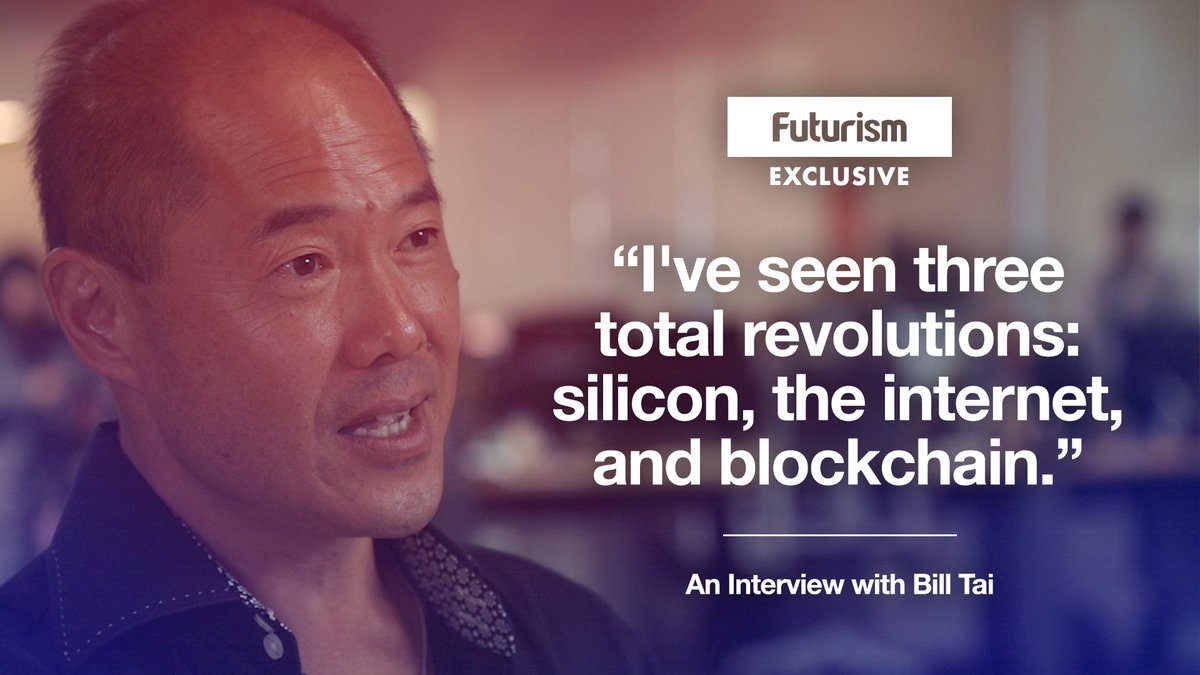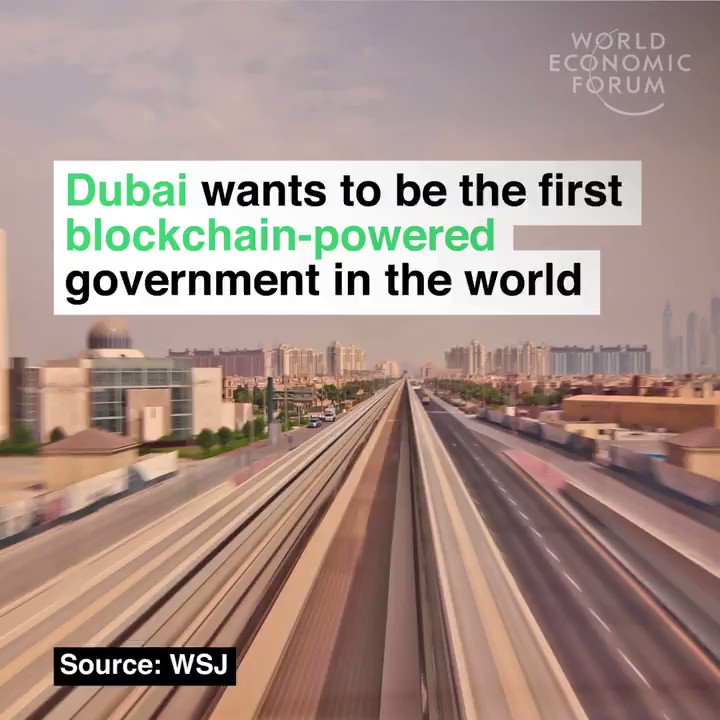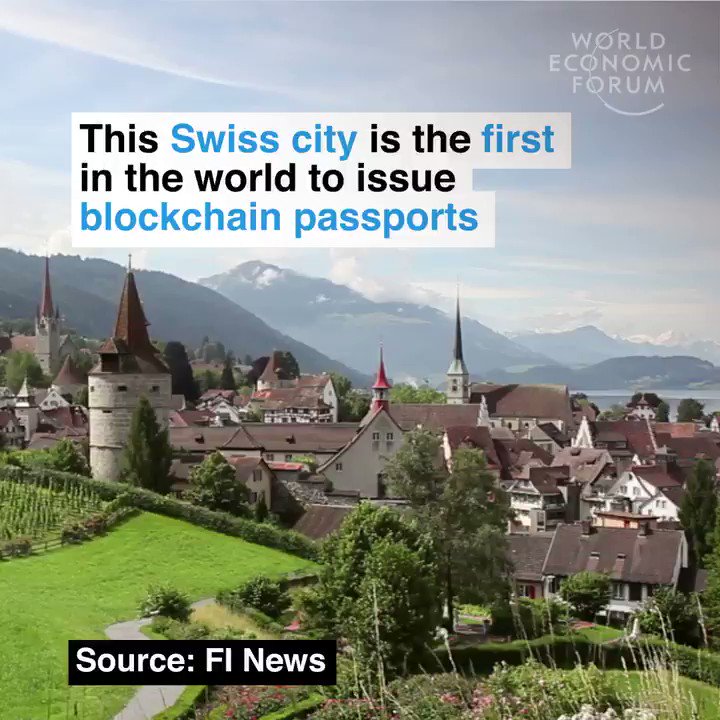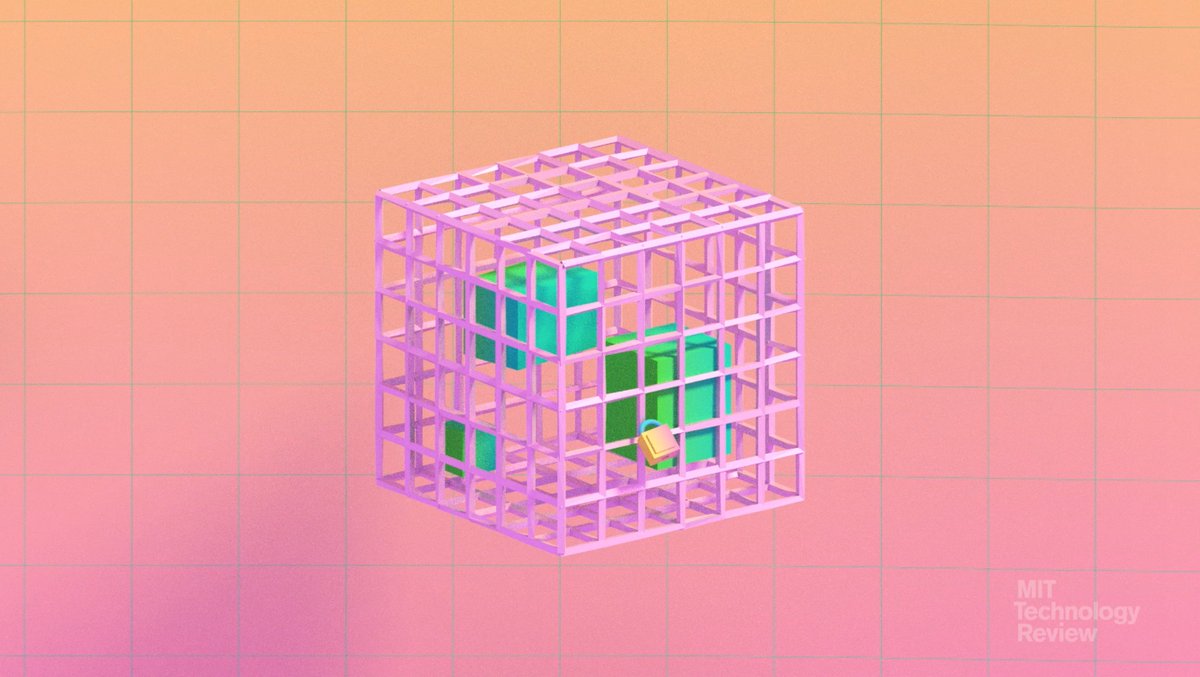Healthcare
- by Robert Haastrup-Timmi
- 3 posts
-
“The blockchain is the most consequential technology since the internet. The internet is programmable information. The blockchain is programmable scarcity.” — Balaji Srinivasan, CEO of 21.co
The internet is entering a second era that’s based on blockchain, this according to futurist Don Tapscotte. Blockchain will also disrupt every industry.
Venture capitalist Bill Tai believes that blockchain has the potential to birth the largest companies in the world. Dubai is working towards becoming the first government powered by blockchain. There are now cities that are using blockchain to issue passports.


I recently interviewed Balaji Srinivasan, CEO of 21.co that is using blockchain to revolutionize sales and marketing. Srinivasan recently noted that blockchain is the internet of money. “With the blockchain, everything that was scarce now becomes programmable.
That means cash, commodities, currencies, stocks, bonds—everything in finance is going to be transformed, and aspects of finance baked into everything else. If you deal with information, you need the internet. If you deal with money, you need to deal with blockchains. — Balaji Srinivasan
What is Blockchain?
Blockchain is a type of data structure that’s used to create a digital ledger of transactions and share it among a distributed network of computers. The distribution network could include smart phones, tablets, cloud-based resources or on-premises compute nodes.
Imagine a universal digital ledger that helps shape how you transact with other individuals or entities all in a secure and anonymous fashion. A key outgrowth of the ledger is the idea of “smart contracts”, which “provide security superior to traditional contract law and reduce other transaction costs associated with contracting”.
WEFHow a blockchain worksHere is a short primer video from MIT Technology Review on blockchain:
To learn more about Blockchain in the healthcare industry, I worked with Marjorie Tan-Thronson, Principal Enterprise Architect at Salesforce.
Marjorie is a former IBM solutions architect, now at Salesforce, responsible for lending her expertise in enterprise architecture to lead rapid prototyping and development of solutions in the emerging technologies space, aimed at accelerating digital business transformation and implementation and integration of new technologies.
Blockchain Is Changing the Healthcare and Life Science IndustryGovernment and states domestically and globally have started to explore the Blockchain technology for streamlining back-office paper trails and business operations.
In 2007, the government of Estonia began a nationwide implementation of a version of Blockchain to secure all Electronic Health Records (EHRs) in the country running on the Guardtime Blockchain (specializing in “Keyless Signature Infrastructure – KSI) to authenticate on a massive scale. Estonia has virtually eliminated the need to have a Health Information Exchange (HIE), all-payer claims database, or Electronic Medical Records (EMRs).
This has made the entire population much more “health smart” and built a huge foundation of trust for accessing patient records. In 2015, they started streamlining driver license renewals with over 80,000 medical certificates being forwarded to its Road Administration Agency.
On May 10, 2016, the Estonian and Finnish Prime Ministers signed a joint declaration to allow patient data exchange, cross-border e-services and e-prescriptions.
Hospitals can have as many as 20 different ways to enter a simple date-of-birth for a patient. Blockchain can tie patients to their data, rather than identity.
According to Deloitte, the healthcare industry is planning the most aggressive deployments of blockchain, with 35 percent of health and life sciences planning to deploy by 2018. Deloitte found that 28 percent of respondents across all industries said they’d already invested $5 million or more, while 10 percent have invested $10 million or more in blockchain.
The proof-of-work scheme is also making inroads for clinical trials where the Blockchain verification can help increase trust, integrity in clinical research publication and restore some of the tarnished reputation from the clinical research community. Clinicians applaud the decentralized ledger that allows for a simpler, more efficient and cheaper way to share peer-reviewed research.
According to a Deloitte study, blockchain is an enabler of nationwide interoperability. The Office of the National Coordinator for Health Information Technology issued a shared nationwide interoperability roadmap, which defines critical policy and technical components needed for nationwide interoperability, including:
1. Ubiquitous, secure network infrastructure,
2. Verifiable identity and authentication of all participant, and 3. Consistent representation of authorization to access electronic health information, and several other requirements.
Summary of Blockchain opportunities Across Markets- Broader awareness of new clinical studies, disease prevention and genome strains. This could start with grants to help researchers develop a repository to support clinical trials especially for diseases that have no cure currently.
- Donors in the network can choose the research cause to benefit further advancement, gain control of the data sharing process and be rewarded
- Rewards as part of the Blockchain contribution generates the emergence of a new shared economy (“Shareconomies”) where members in the network benefit from being “Claimless”
- New treatments and drug discovery to reach FDA approvals is faster because the sampling pool of data is much more diverse, focused and accessible
- Duplication of work and fraud is minimized as consensus of parties in the network embodies trust in the network
- Smart contracts allow for logic to be enforced on top of the Blockchain transaction. This means rules can be executed in terms of how the transactions are carried out as per the contract
 FORBES
FORBES
Blockchain technology - promising use cases for healthcare industryBlockchain Disruption in Healthcare
Blockchain technology is particularly helpful to streamline processes, minimize fraud, lower operational costs, eliminate duplication of work and generate new ways to integrate in a sharing-based economy.
Salesforce has an excellent foundation to help capture and manage a patient’s profile, their preferences, visibility to the patient’s entire care-giver(s), what it takes to engage and stay connected with the care-giver(s), what interests lies in the community that they are a part of and how to cultivate the entire patient journey.
Let’s imagine Samantha is part of the Blockchain for a new chronic arthritis research program and is sharing her progress with a clinical institution about a new type of pain management drug. Samantha learns from the network that they are looking for donors to share their latest experiences with the latest advances in arthritic care.
She decides to communicate the new program within the “Salesforce Arthritis Care Community” to expand her outreach to other patients who are also looking at advances in pain care.
Samantha remembers another community member, Mark (who shares similar interests about the program), is curious as to how he can donate to science and at the same time, learn more about the new clinical trials benefiting from his contribution.
Patients have minimal or no trace-ability of the types of research benefiting their contribution. With Oprah’s recent...continue reading:
http://www.huffingtonpost.com/entry/blockchain-innovation-in-healthcare-and-life-sciences_us_59c9129...-
By
 Admin
Admin - 0 comments
- 1 like
- Like
- Share
-
Issues with the nation’s healthcare system seem to be making quite a few headlines as of late. Though opinions vary greatly regarding just which one takes precedence, the lion’s share of complaints essentially boil down to a failure to communicate.
Blockchain, a digital ledger originally developed for Bitcoin, may have the potential to loosen some of the current kinks. Blockchain Unraveled
As the moniker indicates, blockchain consists of blocks of digital information, each one connected to the next in order of occurrence.
When related exchanges take place, whether involving money or information, a new block is formed and linked to the previous transaction.These blocks can’t be altered, deleted, or rearranged, making them a significant leap forward in information security and solidity.
On the other end of the spectrum, information in blockchain form can easily be shared as long as those attempting a peek are granted access and have a connected server. Rather than being confined to a single database, the system is able to transcend various networks.
From there, those authorized may view and even add to the exchanges already recorded. The result is a concrete record of transactions with a much simpler allocation process as compared to current methods widely in use.
Expanding the Potential of Blockchain
Although blockchain has been described as the next big thing in the healthcare field, it’s currently only in its toddler stages in this industry. Being designed specifically for Bitcoin, the technology is primarily used by members of the financial sector at present.
Banks, payment collectors or allocators, and exchange companies have already begun to reap its advantages.Certain insurance companies are beginning to implement the blockchain system. This could be considered its strongest link to the healthcare industry. While medical billing and insurance payments are significant focal points where blockchain is concerned, the potential applications expand well beyond the financial aspect.
Diego Espinosa, a current major player in the healthcare blockchain field, founded a company called Healthcoin. Diabetes prevention lies at the heart of this Portland startup’s overall purpose. This particular blockchain, set to officially launch later this year, will keep track of patient records with incentive tokens being awarded as their health improves.
Those using Healthcoin’s blockchain platform will be able to take their tokens and past records with them if they switch insurance providers or employers. Aside from giving patients a little extra motivation and encouragement, Espinosa recently told Healthcare Finance News, “What we’re really trying to do here is to allow the value that gets generated by prevention to be transparent, and to be captured by all the people who are involved in it.
We’ve become a beacon; here’s a better way to run an incentive program […] we can bend the cost curve.”Blockchain’s Strongest Links
One of blockchain’s leading strengths currently being touted by members of the healthcare industry is security. Only those who’ve been granted access to a specific blockchain are able to gain entry, and only those authorized to add information may do so.
Everyone in the loop must validate any new data before it’s officially logged. Anyone affected can choose to be notified when attempts are made to add information. At the same time, patients, insurers, or healthcare providers may request alerts when the chain is shared with another entity. Transparency is a major asset for blockchain.
Patients have the capacity to pull up their records and see which exchanges have taken place, while physicians are able to better cross-reference patients’ interactions with other medical personnel and facilities.Insurers may be less apt to question or deny payouts since information can’t be altered.
Even pharmacies stand to gain from the new chain of command because they could have more readily available access to patients’ current medication lists and which prescriptions are covered by their insurance.How Far Does Blockchain Run?
At present, only a handful of those in the medical community have adopted blockchain due to a widespread lack of understanding of the technology and its full potential.
Steps are being taken to bridge the gap, and more are set to jump on board by the end of the year. Insurers like Aetna and Humana have already acknowledged the advantages of such a system.“The visionaries adopting blockchain today are using the technology to reinvent many fundamental business practices,” said IBM Blockchain General Manager, Marie Wieck.
“Working with clients to develop open source and permissioned blockchain solutions for the enterprise, we are seeing firsthand how the technology is... continue reading: https://thebossmagazine.com/healthcare-industry-blockchain/-
By
 Admin
Admin - 0 comments
- 1 like
- Like
- Share
-
By
-
Use Case Survey: Greatest Impact of Blockchain will be in Medical Record Storage... (healthcare-informatics.com)According to a recent survey, 60 percent of respondents believe that blockchain’s greatest impact will be in the storage of medical records, including genomic data—the fastest growing dataset in the world.
This latest research comes from The Pistoia Alliance, a global organization made up of life science companies, technology and service providers, publishers, and academic groups working to lower barriers to innovation in life science and healthcare R&D.
They survey of senior pharmaceutical and life science leaders found that interest in blockchain is high—with a significant 83 percent expecting blockchain to be adopted in under five years. The Pistoia Alliance is therefore urging stakeholders to collaborate on the creation of industry-wide data sharing standards during this early adoption phase.
Such standards will improve security and render patients more likely to share their data with companies; benefitting everyone from researchers to patients, both now and in the future, the Alliance attests. While blockchain offers a potential data housing solution, there are currently several hurdles to its widespread adoption in life sciences, according to the study.
When asked, life science leaders identified the biggest hurdle as regulatory issues (45 percent), followed by concerns over data privacy (26 percent).What’s more, when it comes to use cases of blockchain in pharmaceuticals and healthcare, one possible application is in supporting the supply chain by ensuring an auditable trail to safeguard drug provenance.
More than two thirds (68 percent) of pharmaceutical and life science leaders believe blockchain will have the greatest impact in this area, the study found.This is followed closely by using blockchain to store medical records, including genomic data—where 60 percent of respondents believe blockchain will have the greatest impact. Indeed, genomic data is the fastest growing dataset in the world; recent analysis found it would take 7.3 zettabytes of data to store the genomes of the global population.
Genomic data could be stored in ‘blocks’ on a blockchain, but standards for how it is stored and then shared securely will be essential—and this is where the Pistoia Alliance sees great opportunity for collaboration....
continue reading: https://www.healthcare-informatics.com/news-item/privacy/survey-greatest-impact-blockchain-will-be-m...-
By
 Admin
Admin - 0 comments
- 1 like
- Like
- Share
-
By




